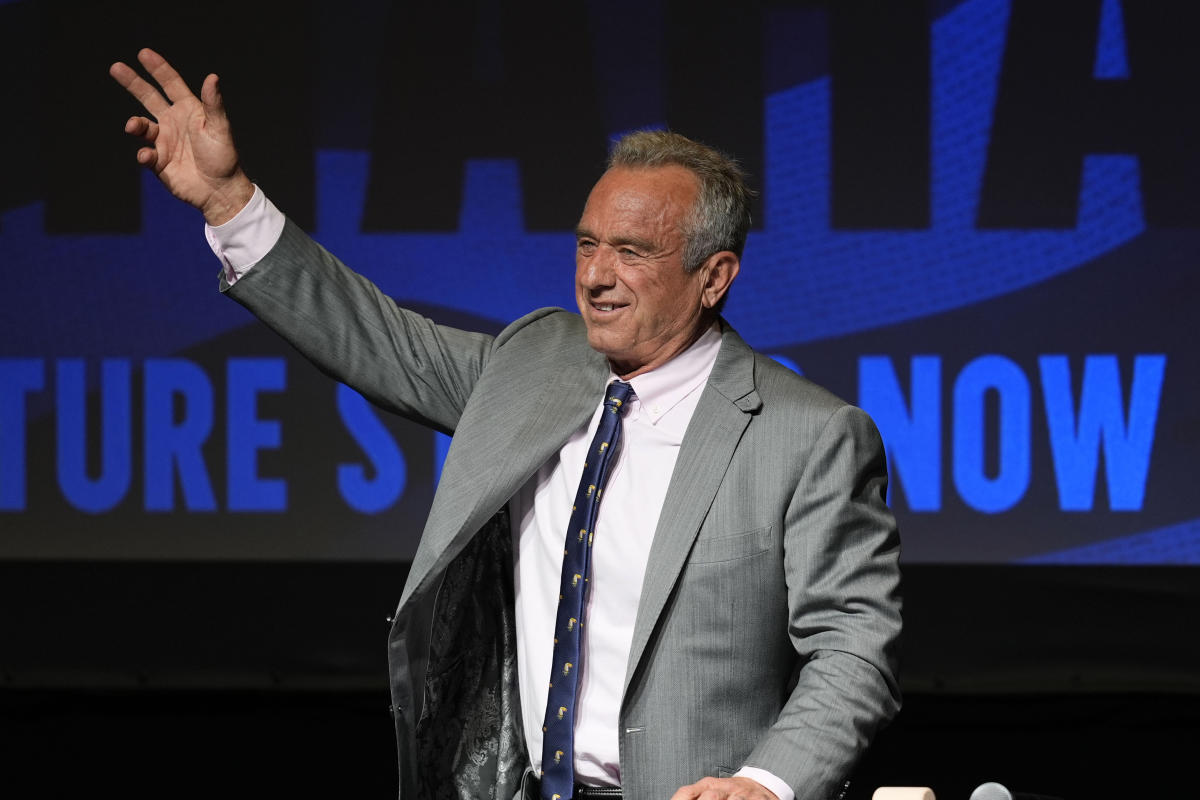Robert F. Kennedy Jr. survived the first legal challenge to his ballot access from the Democratic Party.
Hawaii’s state Democratic Party “failed to meet its burden of proof” to boot Kennedy’s newly formed “We the People Party” from the ballot, according to an order from the Office of Elections late Friday.
While Hawaii’s four electoral votes are not likely to be consequential in the general election, this first victory against a challenge is a sign that efforts to keep the independent candidate off the ballot — mostly undertaken by Democrats so far — face long odds of success.
The challenge, filed by the state party’s chair, also tested the ability of Kennedy’s campaign team to withstand these coming legal battles. In this case, Kennedy’s side didn’t even have legal representation.
“I’m going to ask you to bear with me. I’m not an attorney. I’m just a mom with a lot of kids, and I’m doing this because I want to make their future a little bit brighter,” Kim Haines, the chair of Kennedy’s third-party bid in Hawaii, said during a hearing, which was held on Zoom earlier this month.
Kennedy and his running mate, Nicole Shanahan, are both attorneys. Neither was present for the hearing.
At numerous points during the proceedings, hearing officer Aaron Schulaner was forced to explain procedures to Haines and Michael Moskowitz, who defended their party against William Meheula, the state Democratic Party’s lawyer. This included when it was appropriate to make objections, when to ask questions of the witnesses called and when it was permissible to make statements. One witness from the Kennedy side was also instructed that she could not ask questions of the opposing side’s counsel during her testimony.
Despite these challenges, Schulaner upheld the We the People Party registration. The state Democratic Party has 30 days to appeal.
In Hawaii, as in some other states, the signature threshold to get a new third party on the ballot is lower than for independent candidates. So the Kennedy campaign started a new third party called We the People Party, forming a central committee and gathering 862 signatures. It has launched the We the People Party in several other states as well to take advantage of the lesser requirements, including vote-rich California.
The Democratic Party tried to object to the formation of the party, not by challenging any of the signatures it gathered, but instead through a technicality in the We the People Party bylaws.
The new third party’s rules stated that its party officers shouldn’t be members of any other political party. Moskowitz and Susan Alden, who both hold leadership positions, were alleged to be Democrats.
But the state party failed to provide enough evidence showing their party affiliation as well as sufficient documentation about why this conflicting party affiliation would be disqualifying, hearing officer Aaron Schulaner wrote in his decision. Hawaii does not have partisan voter registration.
Another We the People Party leader was also no longer a registered voter in Hawaii, which the party alleged made him ineligible to take on the role for the party’s formation according to state law. But the We the People won again on this claim.
“A single non-voter would not be sufficient to cause any political party to no longer be considered an association of voters,” Shulaner wrote on this issue.
The state Democratic Party did not respond to a request for comment after the decision.
